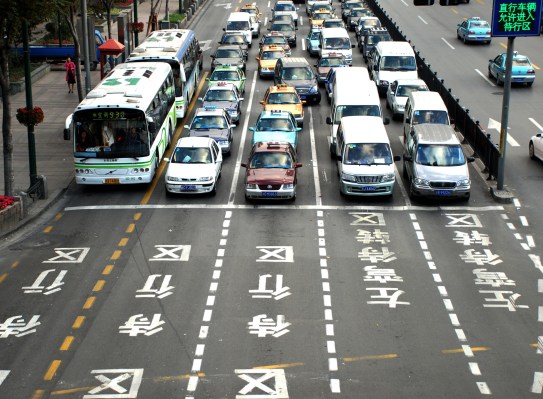Uber surprised China watchers this month when it said it is processing one million rides per day in the country. That impressive number, which leaked out via a letter to investors, is now dwarfed by arch rival Didi Kuaidi’s claim that it is seeing three times as much demand in the country.
The Wall Street Journal reports that in Yet Another Leaked Memo To Investors, Didi Kuaidi’s chief executive Cheng Wei revealed that the company — formed by a merger between China’s top two ride hailing firms this year — now handles three million trips each day. That, Cheng claimed, is triple the volume that it saw as recently as May.
Such quick growth may see Didi Kuaidi, which is raising money right now to battle Uber, increase its newest fundraising efforts from $1.5 billion to $2 billion. That’s at an apparent valuation of $15 billion, the Journal claimed.
These ride per day figures are, of course, company issued facts, so it remains to be seen just how accurate they are. Didi Kuaidi claims to own 80 percent of China’s taxi app market, while Uber CEO Travis Kalanick said in his letter to investors — UberChina is raising $1 billion — that his firm has 50 percent marketshare but dominates China’s nascent peer-to-peer taxi space.
They both can’t be right, and there is clearly some fuzzy maths going on somewhere, or perhaps in both places.
Uber, Didi Kuaidi and other taxi apps are seemingly more prone to fake drivers and passengers in China than other parts of the world, but it’s hard to know exactly what proportion of rides are not genuine. A recent report speculated that “millions” of Uber rides are bogus — ‘drivers’ and ‘passenger’ partner up to fake rides without even stepping into a vehicle, taking advantage of lucrative subsidies — but that report conflicted since it was published by Tencent Tech, a service run by Tencent… which is a Didi Kuaidi investor.
It could well be that the new war on subsidies is encouraging Chinese drivers and passengers to increase forged rides and thus producing these impressive growth figures, or perhaps the Didi Kuaidi merger coupled with Uber’s investment from Chinese search giant Baidu — not to mention the ongoing legal skirmishes — is raising awareness with consumers who are using these services more frequently. The real answer is likely a combination of all factors, but it’s hard to know for sure at this point.
